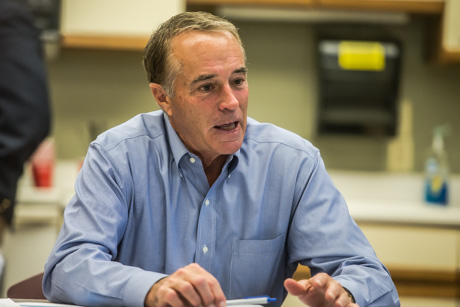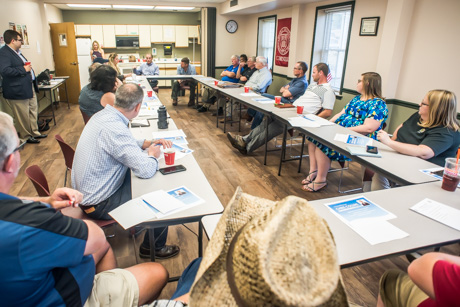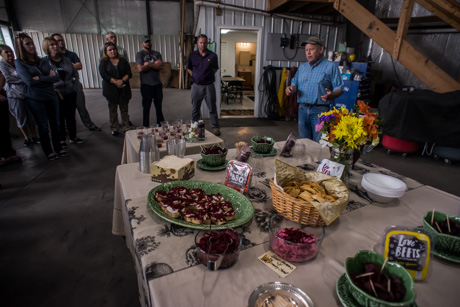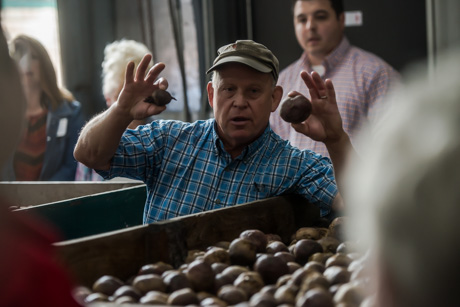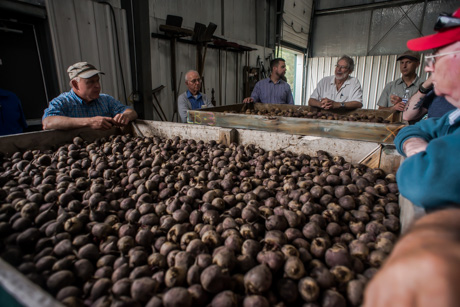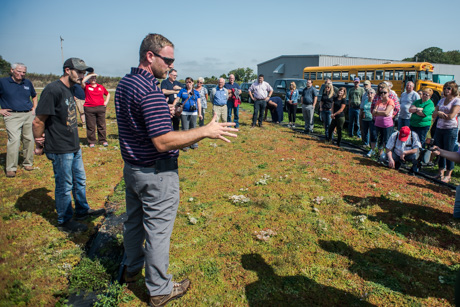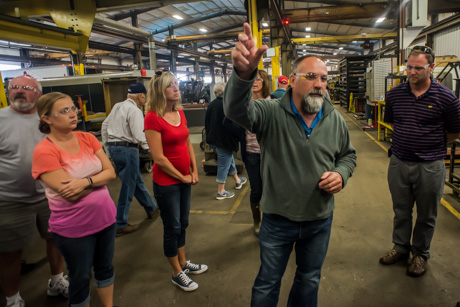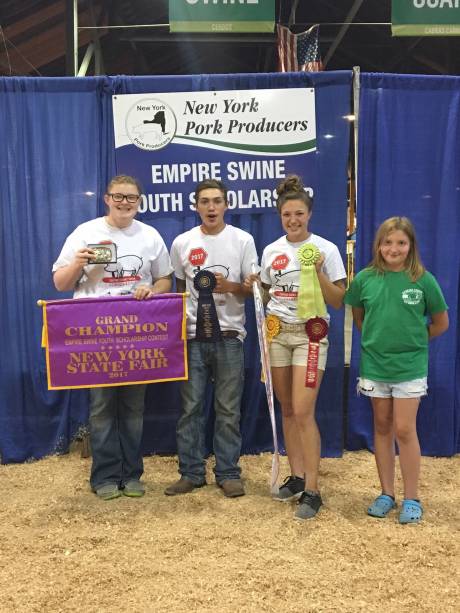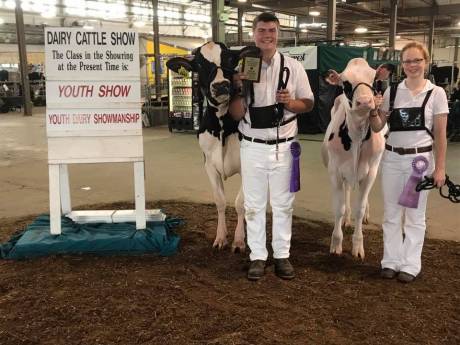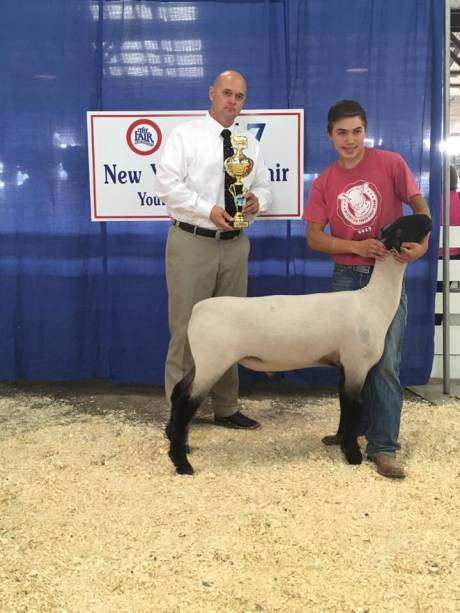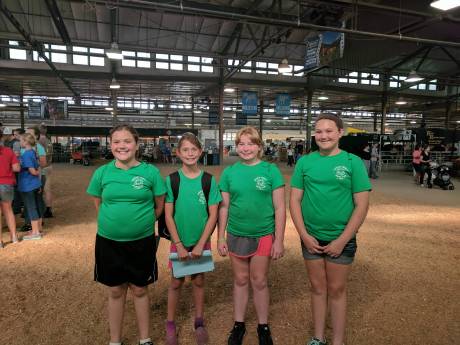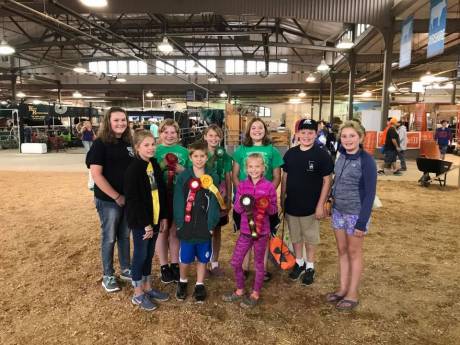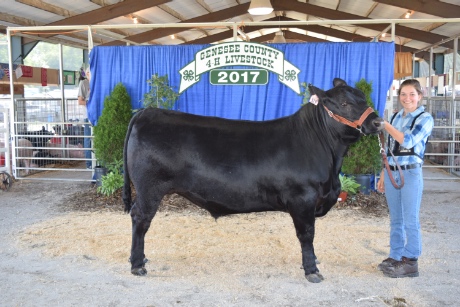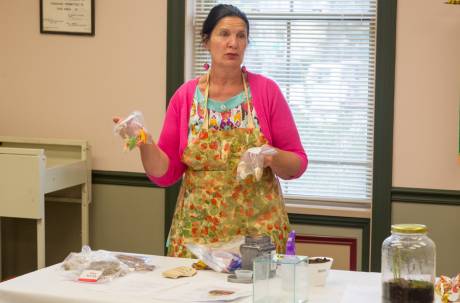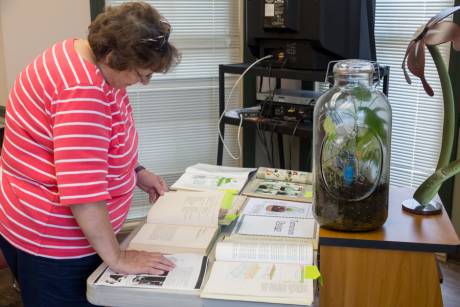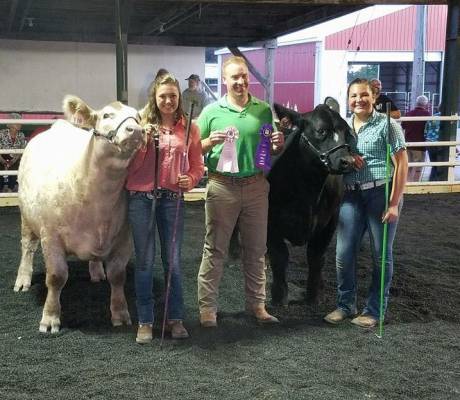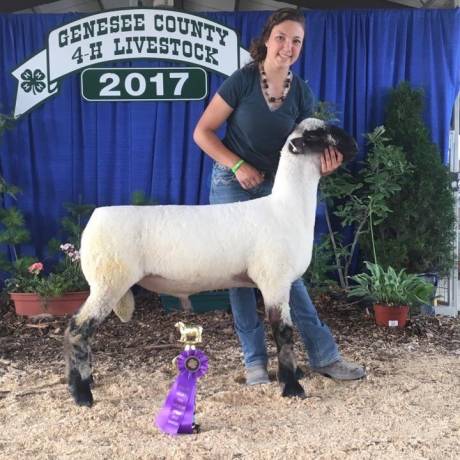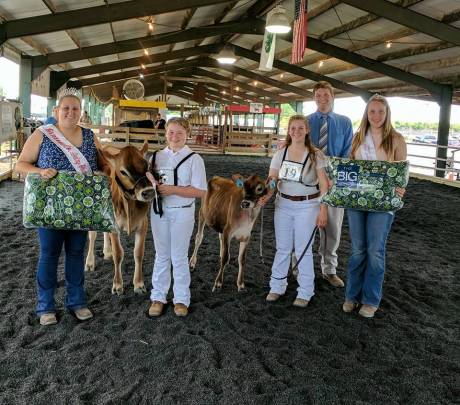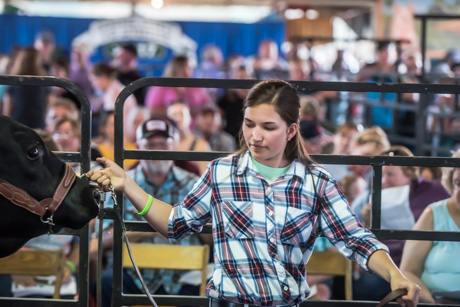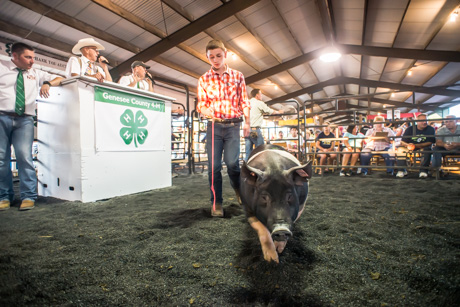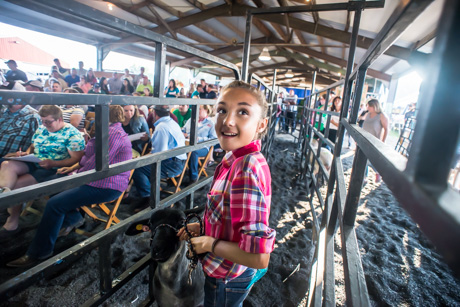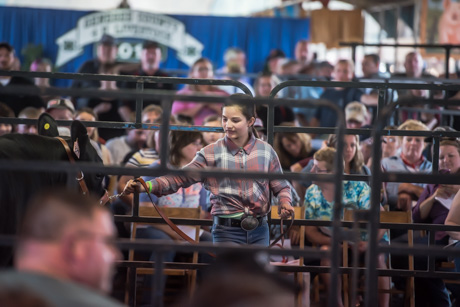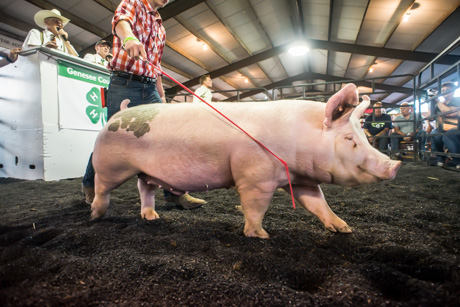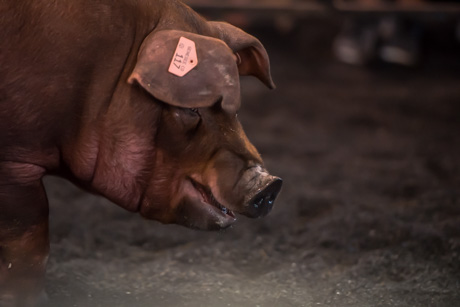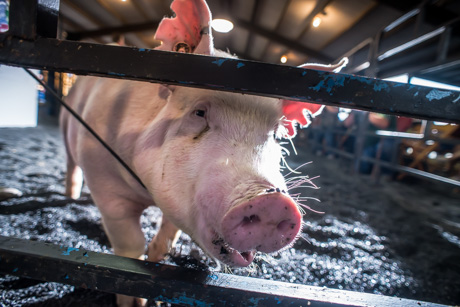Local farmers and other members of the agriculture industry were briefed Saturday on various legislative issues by Rep. Chris Collins and a member of his staff.
The topics discussed included immigration, the new farm bill, the Waters of the U.S. rule and even a couple of non-agricultural items. The meeting was held at the Cornell Cooperative Extension office on East Main Street, Batavia.
Legislative Assistant Taylor Kloustin provided an update on key issues Collins is working on, including the H2A work visa program, workforce legislation, the upcoming effort to pass a new farm bill, and Waters of the U.S. rules.
Collins is meeting next week with the Secretary of Labor, Alexander Acosta, to discuss immigration issues, most notably expanding the H2A visa program to allow workers from other countries to stay in the United States all year long when employed in certain farm jobs, such as dairy and livestock.
She said Collins is also interested in seeing the program revised for temporary workers so that they can get back into the country easier once they've established ongoing employment, such as a TSA-like precheck, perhaps with a biometric ID card.
There's also legislation pending that would move responsibility for farm labor from the Department of Labor to the USDA, which Kloustin said is an agency more familiar with the needs of farmers for labor.
The committee working on the Farm Bill renewal is expected to have language in place by November.
Collins is chair of the specialty crops caucus so his office is working with United Fresh on setting up a specialty crops awareness program in November for House staffers working on the Farm Bill so they can better understand the needs of specialty crop growers.
Dean Norton, an Elba dairy farmer, was one of those who brought the conversation back during the Q&A time to the Waters of the U.S. rule. The rule was approved during the Obama Administration and Trump has rescinded it by executive order. Farmers were upset by the bill because it could be used to regulate the smallest bodies of water on farms.
Norton and other farmers noted that what can be undone by executive order can be reimplemented by executive order in the next administration. They encouraged Collins to pursue legislation that would make Trump's order permanent.
Craig Yunker, CEO CY Farms, expressed concern about the direction the Trump Administration is taking on trade. He's particularly concerned about the seeming protectionist positions of Peter Navarro, a trade advisor to the Trump Administration. Yunker said with the United States pulling out of the Trans-Pacific Partnership there are already trade problems with Japan.
Collins said there's a lot of uncertainty about what will happen with trade during the Trump Administration because we're only eight months into his presidency. He thinks Trump has the right people around him, though, to handle the issue.
"Trump very clear at the U.N.," Collins said. "It’s America first; he’s going to look out for America’s interest. He is going to expect other countries to do their fair share. He's looking for fair trade.
"My worry is your worry," Collins added. "Typically, the retaliation is on ag. That’s the gotcha. Whether it’s Canada or whether it’s Mexico or whether it’s something like apples going to Asia, we do know they retaliate using ag. I share that concern, but the administration knows this. They’re smart guys. To me, it’s too early to tell."
Maureen Torrey, of Torrey Farms, a large grower of produce, said her big concern remains trade restrictions in Canada, which makes it harder to sell U.S.-grown produce north of the border, even though there is no restriction on produce from Canada being sold here.
"It’s pretty sad that within five miles of the border you have 95 percent the population of Canada and the only time I can sell is if they don’t have it and then I have to go through a process to have them to say 'yes, you can ship something', " Torry said. "We need to get that door a little bit more open."
One farmer wondered if the bipartisan spirit displayed by Trump when he reached a deal a couple of weeks ago with Sen. Charles Schumer and Rep. Nancy Pelosi is something the GOP leadership in both houses will pick up on and follow.
"To be honest I think Trump is going to lead it from start to finish," Collins said.
While Trump's deal on the debt ceiling and relief for the victims of Harvey and Irma may have shocked and even upset some members of Congress, the leadership is going to have to fall in line, Collins said.
"I think he's telling Mitch McConnell and Paul Ryan, 'You better get behind me,' " Collins said. " 'I'm the president. I'm the CEO.' "
Collins said he's solidly behind the president on this point and thinks a lot of what the president wants to get done this congressional term, most notably tax reform, will require bipartisan effort. Even within the GOP, he noted, there are too many divergent interests for the Republicans to act unilaterally.
"I applauded him for doing what he did, though others just thought it was the worst thing that ever could have happened," Collins said. "There are a lot of folks that want to protect their own turf, if you will, and they didn’t like it. But as I’ve said, 'How did we do on health care?' Not so good, and that’s something we unanimously agreed on until the rubber hit the road and the document’s there. That’s the whole problem."
The other non-farm issue to come up was North Korea.
" 'Rocket Man', " Collins said with a chuckle. "I’ve got to give Trump credit. He is so good with nicknames. I think Rocket Man is the funniest thing I’ve ever heard. It’s poking at Kim Jong-un. It’s getting under his skin. And it’s appropriate. He’s going to be Rocket Man from now on.”
Dean Norton, dairy farmer from Elba.

